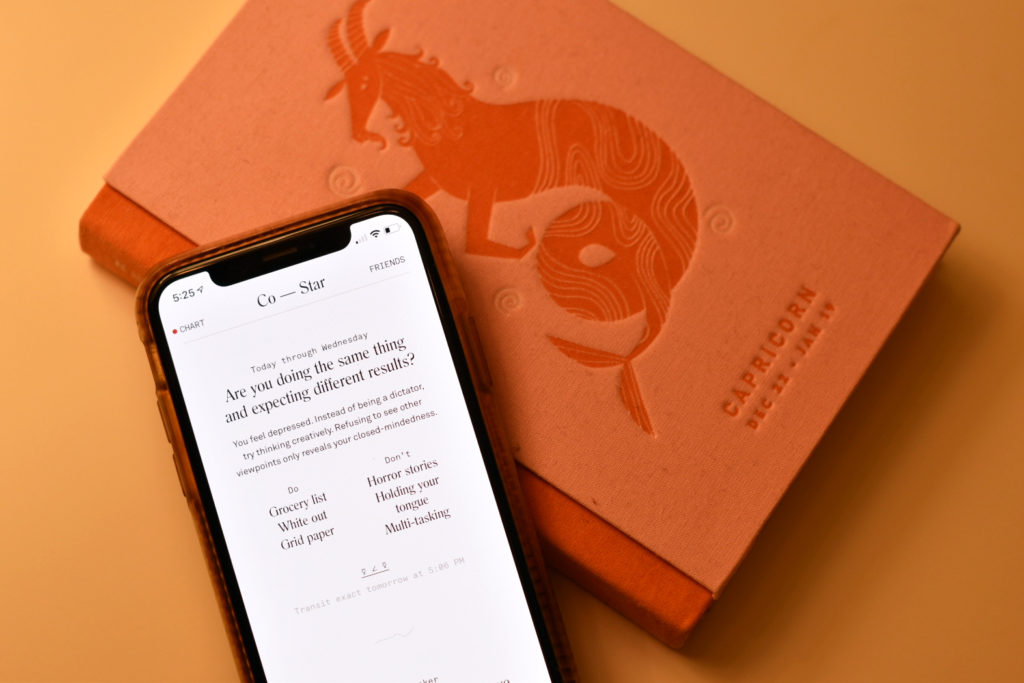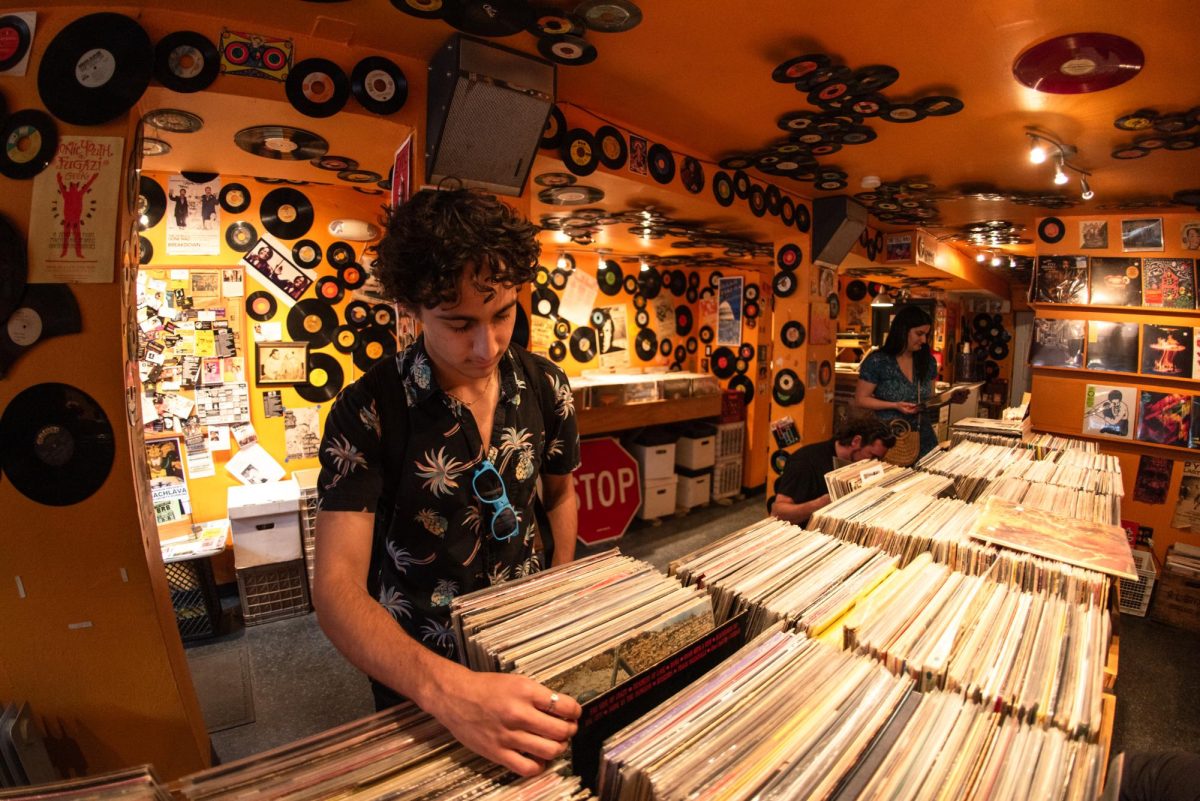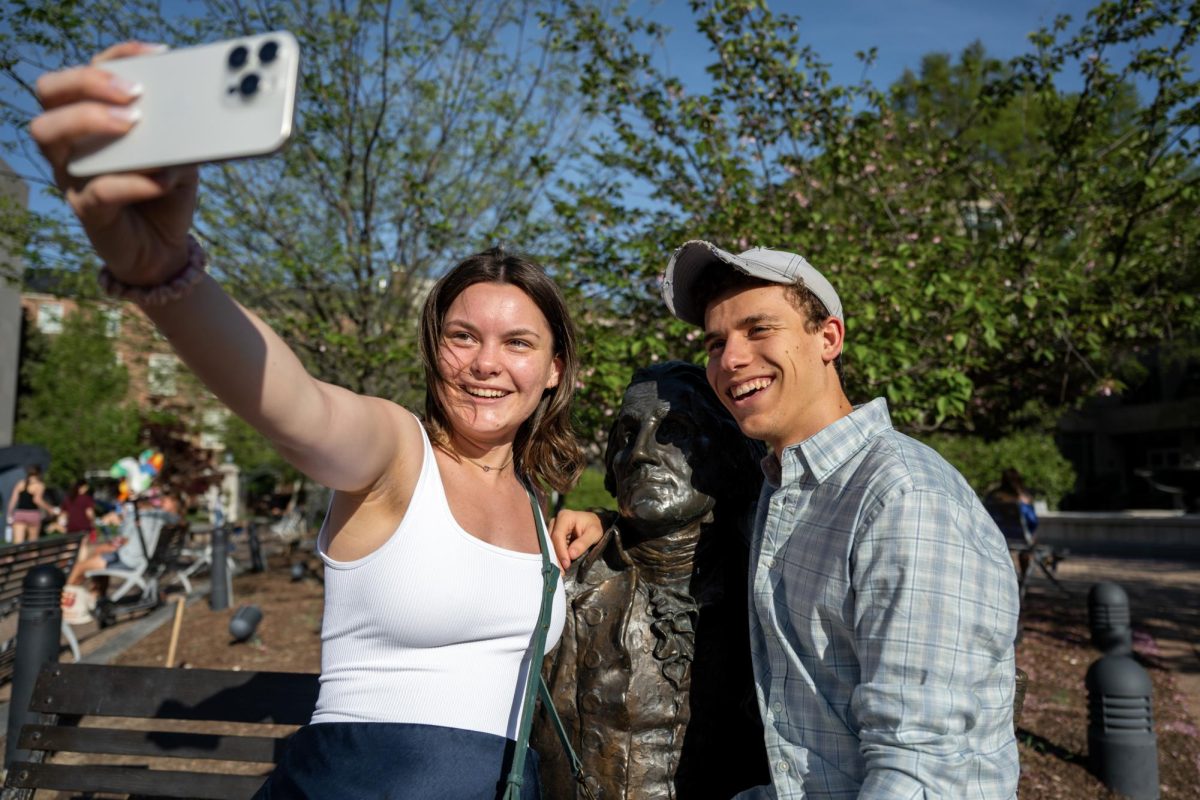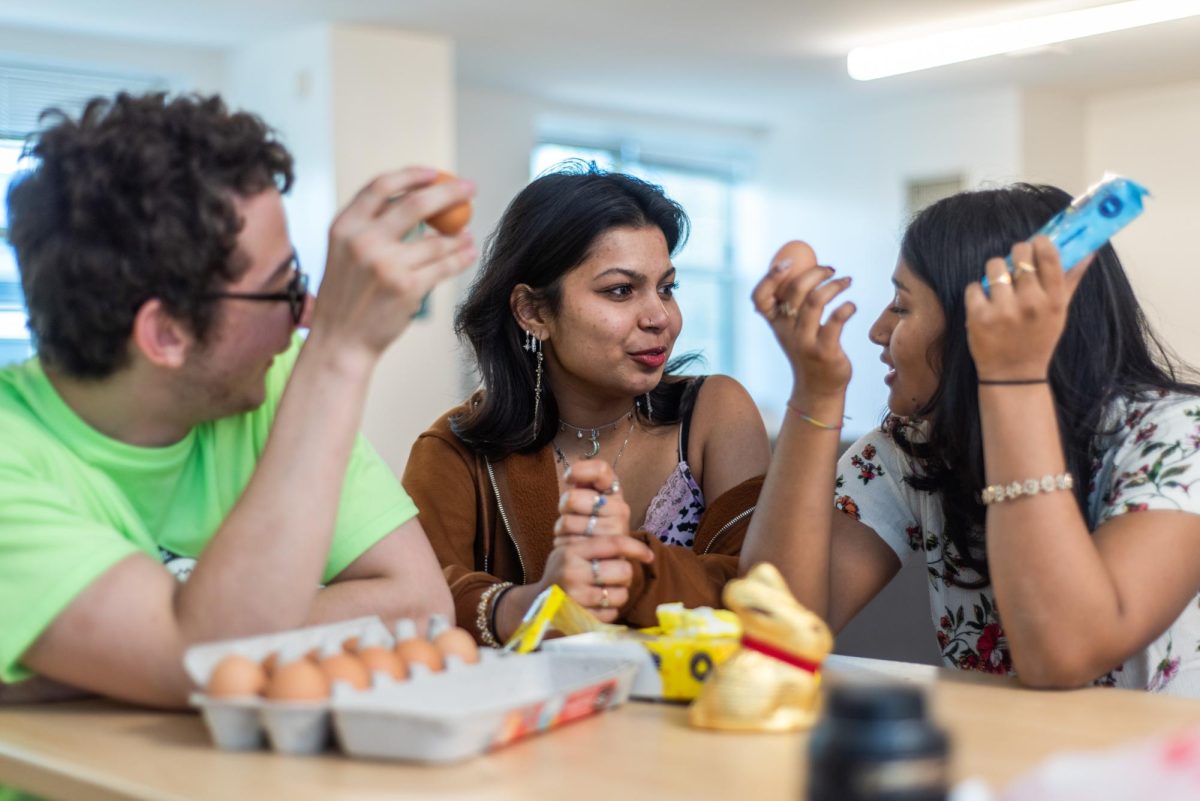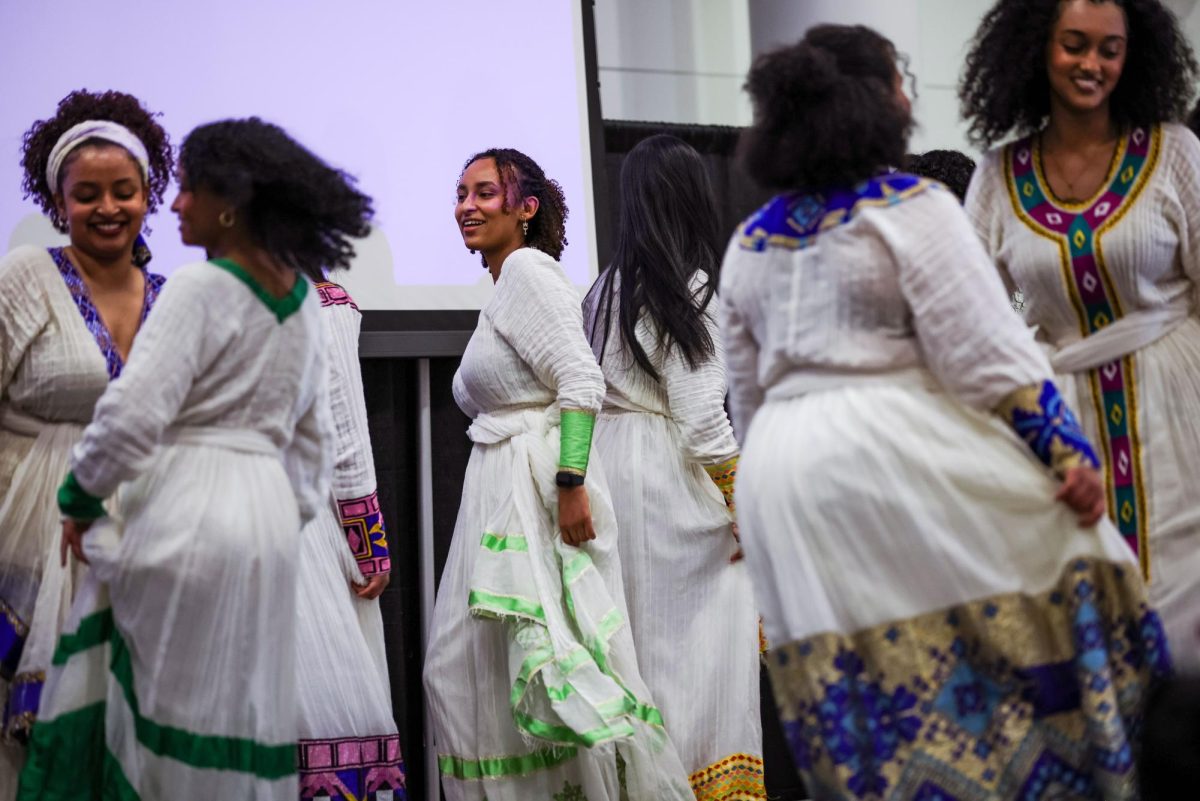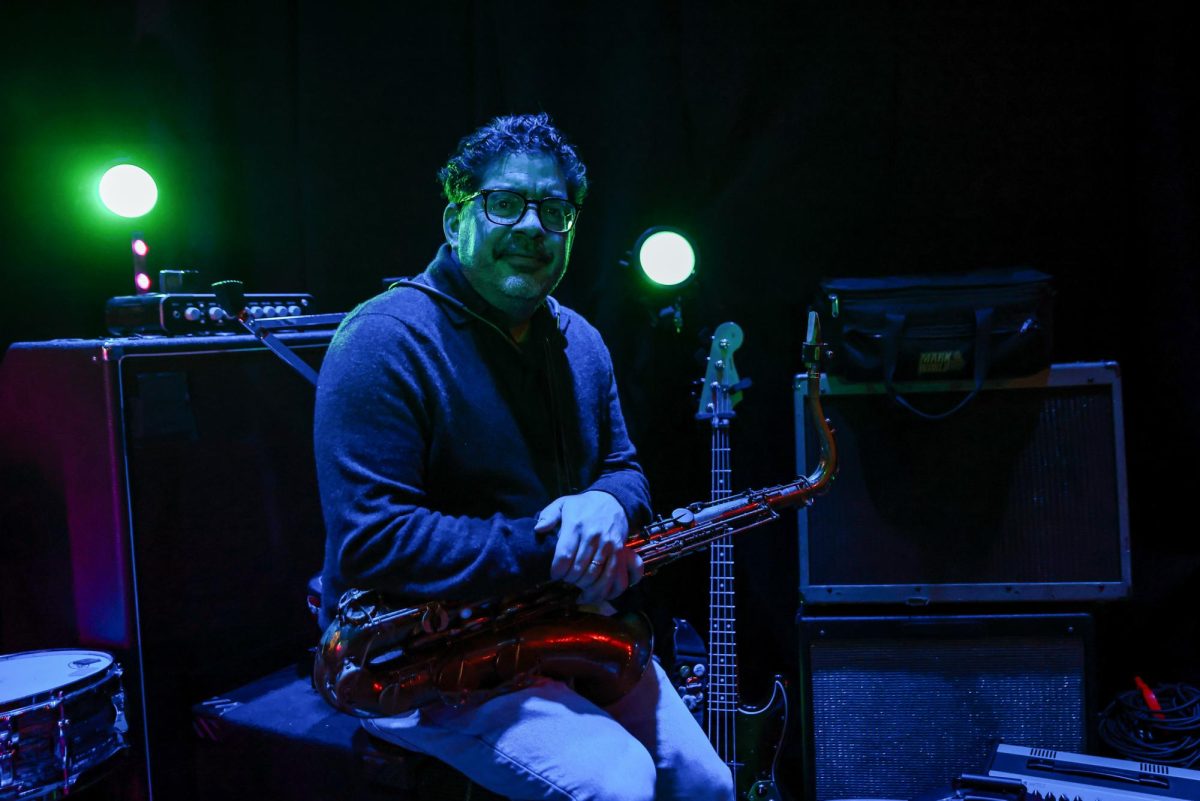Junior Mya Burrell’s aunt introduced her to astrology at the age of 13, and like most novices to the world of astrology, Burrell took to Google.
“I typed in ‘what is a Scorpio,’ and was like, ‘Oh my god, that’s me. That’s me in so many different ways,’” Burrell said. “I just felt so seen. And as a Scorpio, it’s such an important thing for us to feel seen because we feel like we’re not.”
Her aunt picked up knowledge on the subject from her all-girls college, Mount Holyoke, and told Mya that she would learn a lot about herself if she picked up astrology. From her initial, casual Google searches, Burrell said she started doing research into the “scientific” basis of astrology and used that to build her own knowledge.
“There’s just so many scholars, academics scholars, because I view astrology in that way, like any other type of academic field,” she said. “There’s so much knowledge and science behind all of it.”
But she said she acknowledges the immense skepticism toward astrology.
“There is a lot of skepticism, which I understand,” she said. “You can be skeptical of so many things. I think one of the reasons that people don’t like astrology is because a lot of people don’t like to hear the truth about themselves. It’s hard hearing the truth about yourself. But I think that’s why it’s so important.”
A surge of interest in astrology has prompted many students to download apps like Co-Star, an astrological social networking tool, in hopes of understanding basics like their sun, moon and rising zodiac signs. But for the student astrology buffs we spoke with, this mainstream surge only intensified their beliefs and practices.
Junior Olivia Cook became interested in astrology when she entered college, and her interest only increased during the pandemic.
“In Gen Z, there’s a decrease in interest in traditional, organized religion,” Cook said. “A lot of people my age would go to church because they would have to go. They wouldn’t care and I think it’s like our way of being spiritual and connected to something higher without having to be excluded or hated or judged for being who you are.”
She said she thinks young people have been drawn to astrology because it reflects how Gen Z feels about acceptance and being their true selves.
“So much of astrology is figuring out who you are and telling you about yourself and how to be a better version of yourself and I think that’s why we like it so much,” she said. “It gives you a sense of community.”
Senior Lauren Durniak said she thinks it’s funny when skeptics shrug off astrology while simultaneously holding what she sees as questionable beliefs about modern practices, like cryptocurrency or the stock market.
“I get being skeptical,” Durniak said. “I don’t take it 100 percent to heart, but it’s funny because it’s usually the finance bros who are like ‘I believe in the stock market, but I don’t believe in astrology’ and I’m like, ‘OK, kind of both are made up.’”
Durniak said she has always enjoyed reading her horoscope in magazines, but she became more invested in astrology after being exposed to to the practice on social media during the pandemic. She said she finds that speaking with people about their own birth chart often helps her to connect with them on a deeper level and even forge new friendships.
“If you look at someone’s chart, certain placements have characteristics that are tied with that chart,” she said. “They’re not necessarily 100 percent on the nose, but that gets you talking about that person and what they may believe and how they may perceive the world and experience things differently.”
But she said astrology doesn’t always have to be about the all-encompassing evaluation of how a person perceives and experiences the world. Astrology is said to influence everyday aspects of life from relationships to work and mood.
“I don’t take it too seriously in my life, but I think it’s a good way to stay mindful and centered,” she said. “You could read a horoscope, and it’ll help you think about certain things for the day. I think it can kind of just be almost like a self care practice.”
For beginner astrologists, both Burrell and Durniak recommend Cafe Astrology for a deep dive of your own chart and what it means. The website offers free reports and calculations once you input the day, time and location of your birth. These calculations include horoscopes, favorable days and compatibility scores with other astrological signs.
Junior Bug Kavanous said they “wouldn’t bother” trying to explain astrology to a skeptic because they buy into the pop culture portrayal of astrology as something for “crazy” people rather than seeing it as a legitimate practice. The often negative stereotypes associated with astrology that are common in mainstream media can cause people to write it off as insanity before they learn about the logistics and history behind it, they said.
Kavanous’ personal interest in astrology was piqued in high school by their astrology-enthusiast friends.
“People see people who believe in astrology as crazy both in the media and in real life,” they said. “I think it’s just one of those things that’s been completely overwritten by media, and people just think that’s how it is. As soon as a person, usually a woman, says they believe in astrology, nothing they say holds any value and they’re crazy.”
But at its heart, Kavanous said astrology is a belief system that can require some degree of assumption or faith, similar to religion or political ideology.
“It’s a belief system that makes assumptions about you based on when you’re born,” they said. “It’s a form of divination.”


